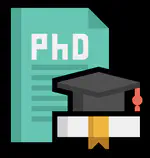Latest News
We are proud to have been part of a glittering array of publications arising from our contribution to the MUM-PREDICT projects over the last 12 months. The team also won the Health Data Research UK Team of the Year 2022 award:
Congratulations to group members Charles Gadd, Woojung Kim and Dominic Danks on the following papers accepted at ML4H and NeurIPS:
In a collaboration led by Carles Foguet and Mike Inouye, Christopher Yau contributed to Genetically personalised organ-specific metabolic models in health and disease which has been published in Nature Communications.
What am I doing?
My name is Christopher Yau and I am Professor of Artificial Intelligence at the University of Oxford and Health Data Research UK.
I am carrying out a survey of UK PhD students who are working in any area of data science and I need your help! We hope to get survey responses from over 300 PhD students so please help us by sparing 10-15 minutes of your time to answer some questions.
Congratulations to PhD student Dominic Danks whose paper Derivative-Based Neural Modelling of Cumulative Distribution Functions for Survival Analysis has been accepted for presentation at AISTATS 2022.
Christopher Yau will be relocating to the Big Data Institute at the University of Oxford in February 2022 to take up a position as Senior Research Fellow between the Department of Women’s and Reproductive Health and the Nuffield Department of Population Health. Future recruitment to the group for postdocs and students will be via the University of Oxford.
Our latest paper, based on the thesis work of former DPhil student Zhiyuan, has been published in Genome Biology. CIDER: an interpretable meta-clustering framework for single-cell RNA-seq data integration and evaluation describes a meta-clustering workflow based on inter-group similarity measures. We demonstrate that CIDER outperforms other scRNA-Seq clustering methods and integration approaches in both simulated and real datasets. Moreover, we show that CIDER can be used to assess the biological correctness of integration in real datasets, while it does not require the existence of prior cellular annotations.
Kaspar Martens will present his latest work at the NeurIPS Workshop “Learning Meaningful Representations of Life” Rarity: Discovering rare cell populations from single-cell imaging data. The work arises from his Turing-Crick Biomedical Award which supports a collaboration between the Alan Turing Institute and the Ciccarelli Group at Kings College London and the Francis Crick Institute.
